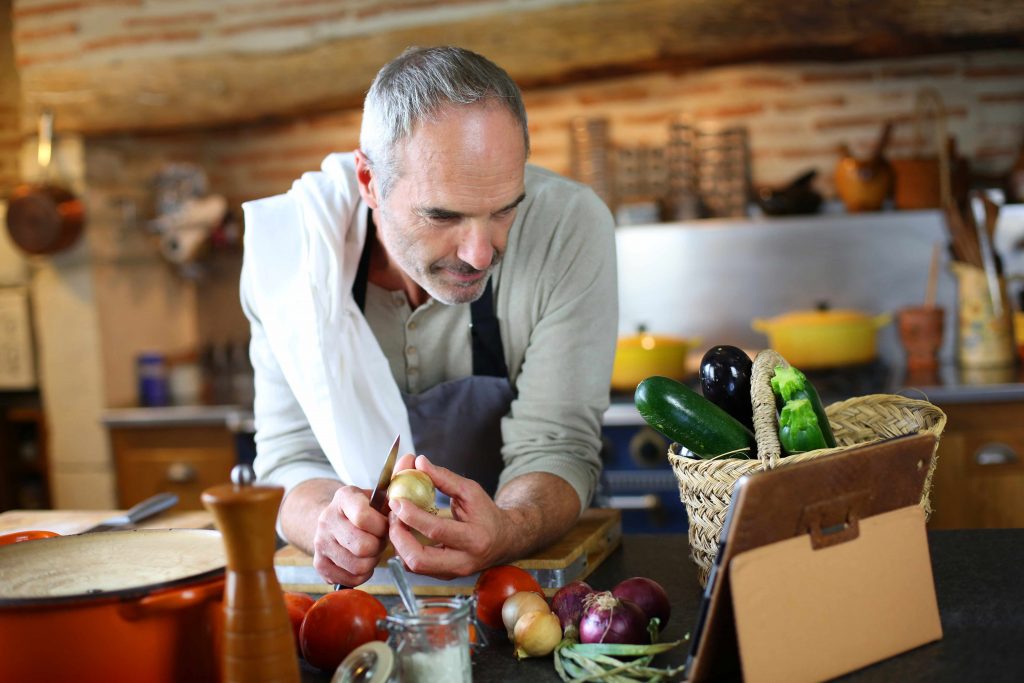
DEAR MAYO CLINIC: I've heard I should avoid certain foods like grapefruit and broccoli, as well as alcoholic beverages, when taking certain medications. Why is that? How can I be safe from any potential issues?
ANSWER: Certain foods and beverages can interfere with several kinds of prescription and nonprescription medications.
Problems arise because natural chemicals or nutrients in foods or drinks can interfere with a medication, lessening its effectiveness or potentially having a stronger affect. Foods or beverages also can affect the enzymes that break down, or metabolize, the medication in your body. As a result, the medication may stay in your body for too short or too long a time.
A medication that's broken down too quickly won't have time to work. On the other hand, a medication that stays in the body too long may build up to potentially dangerous levels.
Don't take these interactions lightly. Some can cause potentially dangerous health problems. Common and serious side effects are high blood pressure, heart irregularities, muscle weakness and bleeding.
It is important that you review your prescriptions, and other over-the-counter medications and supplements, with your health care provider or pharmacist to determine any potential interactions or reactions. Before taking any medication, it is best to ask, "Are there foods or beverages I should avoid when taking this medication or supplement?"
Another important question to ask your health care provider or pharmacist is about the amount, as well as when you can eat certain foods or drink certain beverages. Consider asking if you should completely avoid specific foods or beverages, or if smaller amounts are allowed.
Also, timing can matter. Some medications should be taken with food, while others should be taken on an empty stomach. Ask about the time difference between ingesting food and taking your medications. Some require a 30- to 60-minute buffer, while other medications may be such that it would simply be best to avoid eating certain foods while taking the prescription.
These are some of the most common foods and drinks that can cause challenges:
- Certain fruits and their juices, such as grapefruit, oranges, pomelos and cranberries.
- Some vegetables that are rich in vitamin K, such as collards, spinach and kale, and other foods, such as soybeans, broccoli, and carrot and pomegranate juice.
- Tyramine, which is an amino acid or protein building block found in aged cheese; pickled and fermented foods, such as sauerkraut and kimchi; processed meats, such as sausages; and some sauces like shrimp or soy sauce.
- Licorice or licorice extract in candy or teas.
- Milk and milk products.
- Alcoholic and nonalcoholic beverages, such as beer, wine and spirits, and those that contain caffeine, such as coffee, tea or soda.
It is important to be mindful about reading labels and being aware of what ingredients are in certain foods and drinks. Sometimes manufacturers do not list all the ingredients or use the most common name of an ingredient. For instance, numerous citrus-flavored soft drinks contain grapefruit juice or grapefruit extract, but if you don't pay attention, you could have a potential problem with your medications.
If your diet changes seasonally or when away from home — for instance, if you harvest vegetables from a garden or eat more of certain fruits while on vacation — be thoughtful to ensure consistency with food intake and medication dosing.
The list of commonly prescribed medications that can interact with certain foods and beverages includes medications that:
- Fight infection.
- Reduce cholesterol.
- Treat high blood pressure.
- Treat heart problems.
- Prevent organ rejection.
- Treat anxiety or depression.
- Stabilize mood or act as a stimulant.
- Control seizures.
- Minimize motion sickness.
- Treat erectile dysfunction.
- Replace hormones.
- Reduce cough.
- Control pain.
Your health is important. As part of your health, eating a nutritious diet and taking your medications as prescribed matters. You may be surprised and disappointed to see some of your favorite foods and drinks listed as ones to be wary of when taking different medications. But taking time to speak with your health care provider about the risks and benefits is valuable in the long run to avoid any issues.
If you find it difficult to avoid some of these foods, especially if they are healthy favorites, ask your health care provider or pharmacist if comparable medications are available that you can take without interacting with your preferred foods and beverages. — Katherine Zeratsky, R.D.N., Endocrinology/Nutrition, Mayo Clinic, Rochester, Minnesota
****************************
Related Articles
- Mayo Clinic Q and A: Can medications and supplements interact with one another? published 10/13/21
- Mayo Clinic Q and A: Reducing the risk of medication errors published 9/27/21
- Consumer Health: Is your daily dose of citrus interfering with your medications? published 1/10/20







